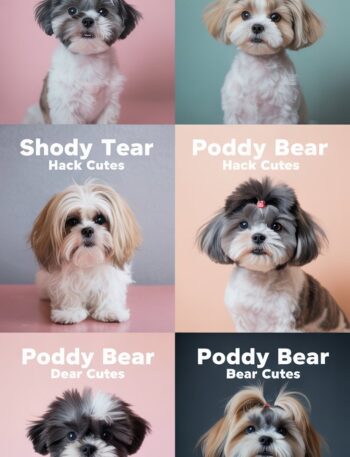Introduction: Why Training a Rough Collie is Unique
Rough Collies are among the most intelligent and loyal herding breeds, famously known for their elegance, devotion, and protective instincts. But this intelligence comes with unique training challenges. They are sensitive, quick learners, and naturally inclined to herd, which can lead to unwanted behaviors if not managed properly.
In this ultimate guide, we’ll dive deep into science-based techniques, expert-level strategies, and advanced tips for training your Rough Collie to become a well-behaved, happy, and mentally stimulated companion.
Understanding the Rough Collie Mindset

Before you start training, you must understand the psychology of a Rough Collie. Training success depends on working with their instincts, not against them.
1. Intelligence and Problem-Solving
- Rough Collies rank among the top 20 most intelligent breeds.
- They learn commands quickly, often in less than 5 repetitions.
- However, this intelligence means they can get bored easily, which may lead to destructive behavior.
2. Sensitivity
- Collies are emotionally sensitive and respond best to positive reinforcement.
- Harsh corrections or yelling can cause fear-based behaviors like withdrawal or anxiety.
3. Herding Instinct
- Rough Collies were bred to herd livestock, and that instinct doesn’t disappear.
- Without proper training, they may nip at heels, chase cars, or herd children and other pets.
Key Training Principles for Rough Collies

To make training effective, keep these golden rules in mind:
✔ Use Positive Reinforcement – Reward desired behavior immediately.
✔ Short, Fun Sessions – 10–15 minutes is ideal.
✔ Consistency is Non-Negotiable – Everyone in the household should follow the same rules.
✔ Early Socialization – Expose your Collie to people, dogs, and environments early.
✔ Mental Stimulation is Critical – Mental fatigue is as important as physical exercise.
Step-by-Step Training Plan for Rough Collies
Stage 1: Puppy Training (8–16 Weeks)
Goals:
- Housebreaking
- Name recognition
- Socialization
Steps:
- Crate Training: Introduce the crate as a safe space.
- Potty Training: Take your puppy out every 2–3 hours, reward immediately after elimination.
- Basic Commands: Start with Sit, Come, Down.
- Handling Exercises: Touch paws, ears, and tail gently to prepare for grooming and vet visits.
Pro Tip: Begin leash training indoors to prevent pulling habits later.
Stage 2: Adolescent Training (4–12 Months)
Goals:
- Reinforce obedience
- Prevent bad habits
- Introduce leash manners
Commands to Teach:
- Leave It – Essential for impulse control.
- Heel – Prevents pulling on walks.
- Stay – Builds patience and control.
Behavior Management:
- Redirect nipping or herding behaviors to toys.
- Use a long lead for recall training in safe areas.
Stage 3: Advanced Obedience (12 Months and Beyond)
Goals:
- Off-leash reliability
- Advanced tricks
- Specialized roles (therapy, agility)
Commands to Add:
- Place – Go to a mat or bed and stay there.
- Object Retrieval – Fetch specific items by name.
- Directional Commands – Useful for agility or herding trials.
Specialized Training for Rough Collies
1. Controlling Herding Behavior
- Teach “Leave It” and “Come” early to prevent chasing.
- Use redirect games like fetch to satisfy instincts.
2. Socialization with Children and Pets
- Start before 14 weeks.
- Supervise playtime and teach gentle mouth behavior.
3. Leash Training
- Use a front-clip harness to prevent pulling.
- Reward your Collie for walking at your side.
4. Therapy and Service Training
- Collies excel as therapy dogs due to their gentle nature.
- Focus on calmness, emotional responsiveness, and ignoring distractions.
Positive Reinforcement Techniques
- Clicker Training: Pairs a click sound with rewards for precise timing.
- Variable Rewards: Mix treats, praise, and play for motivation.
- High-Value Treats: Use special rewards for difficult commands.
Mental Stimulation for Rough Collies
Collies need brain games as much as physical exercise.
- Puzzle Feeders: Slow down eating and engage problem-solving skills.
- Scent Games: Hide treats or toys for your Collie to find.
- Trick Training: Teach advanced tricks like spin, play dead, or fetch remote.
- Agility Courses: Perfect for physical and mental engagement.
Common Training Mistakes to Avoid
❌ Skipping early socialization
❌ Using harsh punishments
❌ Inconsistent rules (confuses the dog)
❌ Neglecting mental stimulation
❌ Allowing herding behavior to persist unchecked
Tools & Resources for Training
- Clicker
- Long Lead (30 ft) for Recall
- Front-Clip Harness
- Interactive Puzzle Toys
- Training Treats (low-calorie, high-value)
Training Timeline & Progress Tracker
| Age | Focus Area |
|---|---|
| 8–12 weeks | Socialization, name recall |
| 3–6 months | Basic obedience, potty |
| 6–12 months | Leash manners, advanced obedience |
| 1 year+ | Off-leash, agility, therapy |
FAQs
1. Are Rough Collies easy to train?
Yes. They are highly intelligent and eager to please, making them one of the easiest breeds to train with positive reinforcement.
2. How long does it take to train a Rough Collie?
Basic obedience can take a few weeks, but full training for off-leash reliability and advanced commands can take 6–12 months.
3. Do Rough Collies need professional training?
Not always, but hiring a positive reinforcement-based trainer can help with advanced skills or behavioral issues.
4. Can Rough Collies be trained for therapy work?
Absolutely! Their calm and empathetic nature makes them excellent therapy dogs when trained for emotional support and distraction control.
Conclusion
Training a Rough Collie is an exciting journey that combines patience, consistency, and creativity. With their intelligence and loyalty, these dogs thrive under structured training and mental stimulation. Start early, stay positive, and remember—training is not just about obedience, it’s about building a bond that lasts a lifetime.




